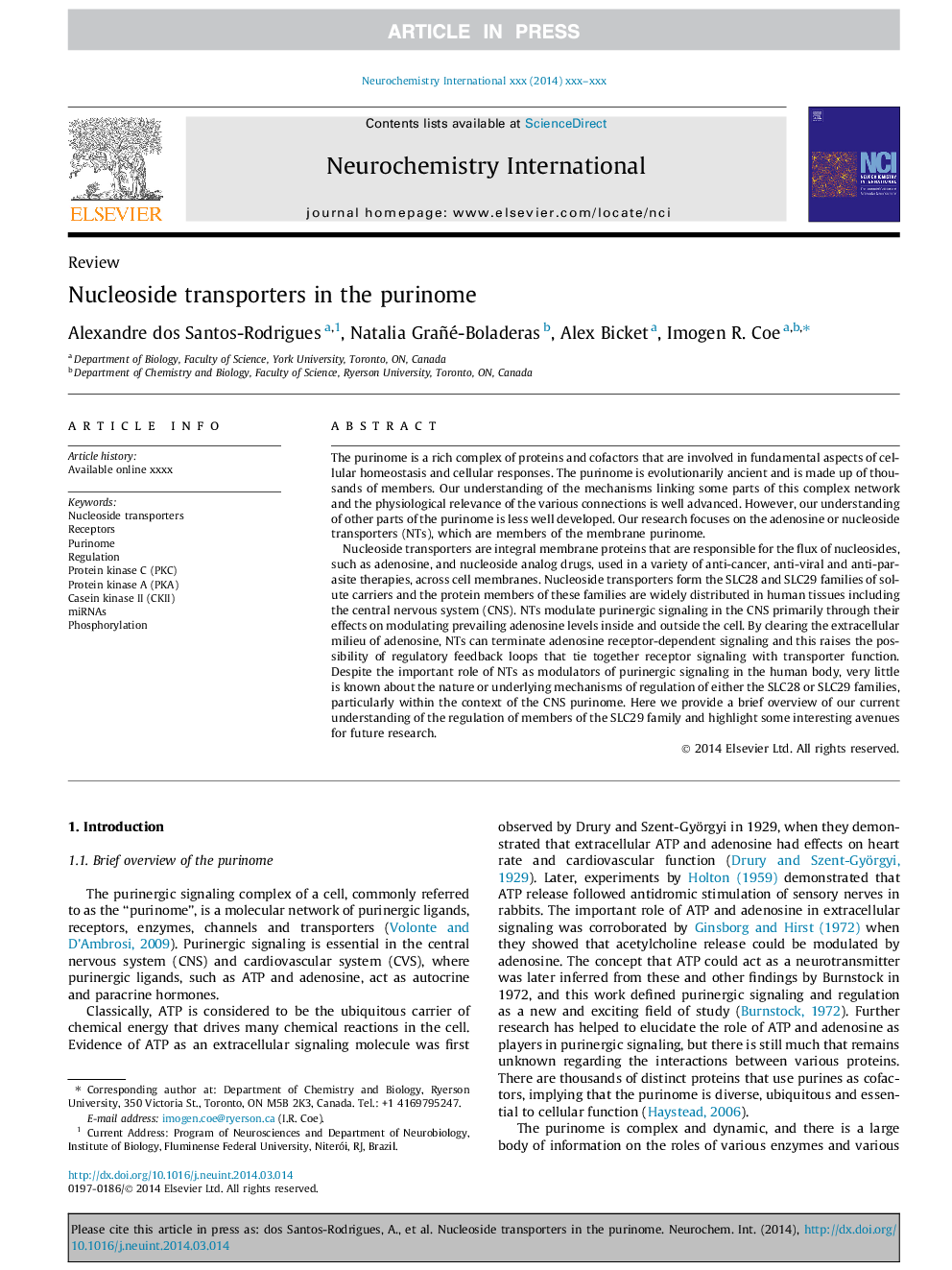| Article ID | Journal | Published Year | Pages | File Type |
|---|---|---|---|---|
| 8479265 | Neurochemistry International | 2014 | 9 Pages |
Abstract
Nucleoside transporters are integral membrane proteins that are responsible for the flux of nucleosides, such as adenosine, and nucleoside analog drugs, used in a variety of anti-cancer, anti-viral and anti-parasite therapies, across cell membranes. Nucleoside transporters form the SLC28 and SLC29 families of solute carriers and the protein members of these families are widely distributed in human tissues including the central nervous system (CNS). NTs modulate purinergic signaling in the CNS primarily through their effects on modulating prevailing adenosine levels inside and outside the cell. By clearing the extracellular milieu of adenosine, NTs can terminate adenosine receptor-dependent signaling and this raises the possibility of regulatory feedback loops that tie together receptor signaling with transporter function. Despite the important role of NTs as modulators of purinergic signaling in the human body, very little is known about the nature or underlying mechanisms of regulation of either the SLC28 or SLC29 families, particularly within the context of the CNS purinome. Here we provide a brief overview of our current understanding of the regulation of members of the SLC29 family and highlight some interesting avenues for future research.
Keywords
Related Topics
Life Sciences
Biochemistry, Genetics and Molecular Biology
Cell Biology
Authors
Alexandre dos Santos-Rodrigues, Natalia Grañé-Boladeras, Alex Bicket, Imogen R. Coe,
